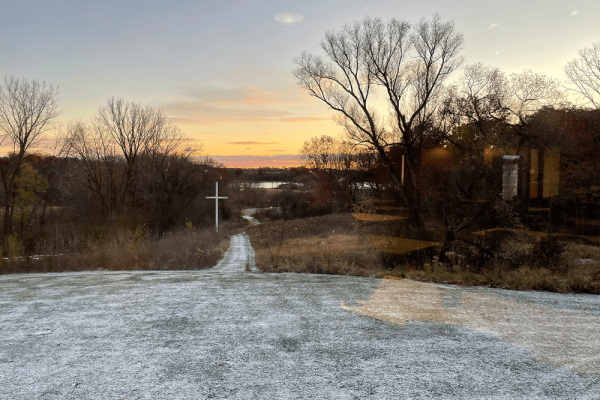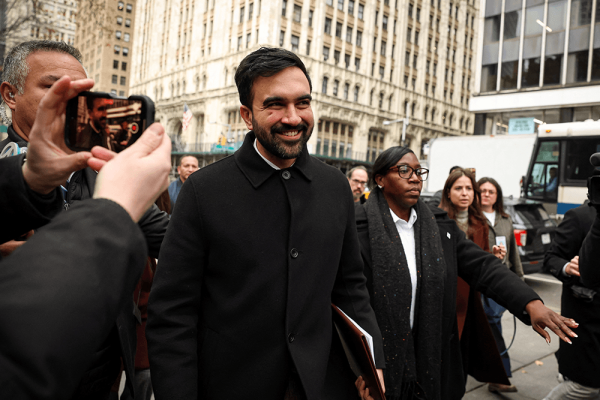Everyone is supposed to love Christmas and the holidays. It’s supposed to be a time of family and gratitude. But I dread them. I dread the weeks leading up to Christmas, starting the day before Thanksgiving when Christmas carols begin permeating the radio and stores and build to a crescendo through Christmas Eve. The growing darkness in the absence of daylight saving time doesn’t help.
How do I navigate my lack of connection to the spiritual importance of this holiday, especially as a Christian? The worst of my childhood trauma was experienced between Christmas and Easter. Not having family means that I am emotionally homeless during the holidays, and often have to rely on the kindness of others who invite me over for a Christmas dinner or cobble together a celebratory outing with other orphans. On top of this, I am bipolar, which kicks my depressive episodes into overdrive the minute we turn the clocks back.
Still, I practice gratitude. I go through my list every day, despite not wanting to get out of bed every morning. On days like this, I am proud of washing my hair or answering a few student emails. On days like this, I feel broken and unredeemable. On days like this, I feel ashamed that I can’t access the joy I am supposed to feel as a Christian. I don’t feel saved. I don’t feel anything.
You might be experiencing the same kind of disconnect this Christmas season for one reason or another — personal loss, chronic pain, mental illness, or job insecurity. You might be feeling guilty because you see others who suffer from depression or anxiety but still have a smile that lights up a room. They go to church nearly every Sunday while you haven’t been in weeks or even years because the moment you cross that church threshold, you start to cry and can’t stop.
Some pastors and well-meaning friends will tell us to give it over to God, to pray, to go to counseling, to eat better, to take a walk, and reach out to friends. They have good intentions and sometimes those strategies can certainly help, but you can also do all of those things and still feel broken. You can still feel so depleted that washing your hair every day is the crowning achievement for the month. You still might feel more relief listening to Queen’s Under Pressure than any choir’s rendition of Away in a Manger.
Listen, you can be wrecked and holy and never have a “normal” looking Christmas. Remember that God is big enough to be okay with wherever you are on Christmas Eve or day — whether in church or writing poetry in a bar. Authors Jericho Brown and Mary Karr suggests that poetry can be a form of prayer, so why can’t self-care be a form of worship? Perhaps if we saw it that way, such kindness to ourselves would seem less indulgent, more urgently necessary.
Self-care doesn’t cure my sadness, but such practice helps momentarily set boundaries around a depression that often feels ubiquitous and unyielding. A part of this means learning to say “no” more around the holidays to projects that I feel I should take on. In Christian culture, we are taught that we can do “all things through Christ” as a kind of rallying cry, forgetting that God is also with those who mourn.
I also have to remember that my feeling lonely has nothing to do with how much faith I have. I totally believe that God loves me, but in no way does that alleviate the ache of not having a family of my own. It is not enough to lift the heavy wave of sadness I experience waking up every morning or the madness I battle many nights. I cycle between mania and depression, the ebb and flow of the ocean. Some days I walk on water. Some days I drown.
And there were some days when my Christian friends were too scared of my depression and walked away. There were times I was too scared to tell anyone how badly I was doing. My definition of prayer expanded when friends and acquaintances who didn’t believe in organized religion of any kind emailed, called, or texted me to say they were thinking of me for some reason and asked if I was okay. But isn’t that the essence of the Christmas message, that God sends help no matter where you are, whether it’s a dirty stable or in a field watching sheep or in your room about to battle a manic episode?
I still don’t know what I am going to do for Christmas this year. I might watch a movie or take a long walk on the High Line. I might try to get a group of writers together who want to work on their stories and drink eggnog. The trick is to not secretly think that God will judge me because I’m hunched over a computer rather than sitting in a pew for Midnight Mass. Christmas isn’t a measuring stick of one’s faith or thankfulness. Christmas is for the poor in spirit, the wrecked and holy, the mad ones who cry out for hope and healing day after day. Christmas is for those of us still waiting.
Got something to say about what you're reading? We value your feedback!







